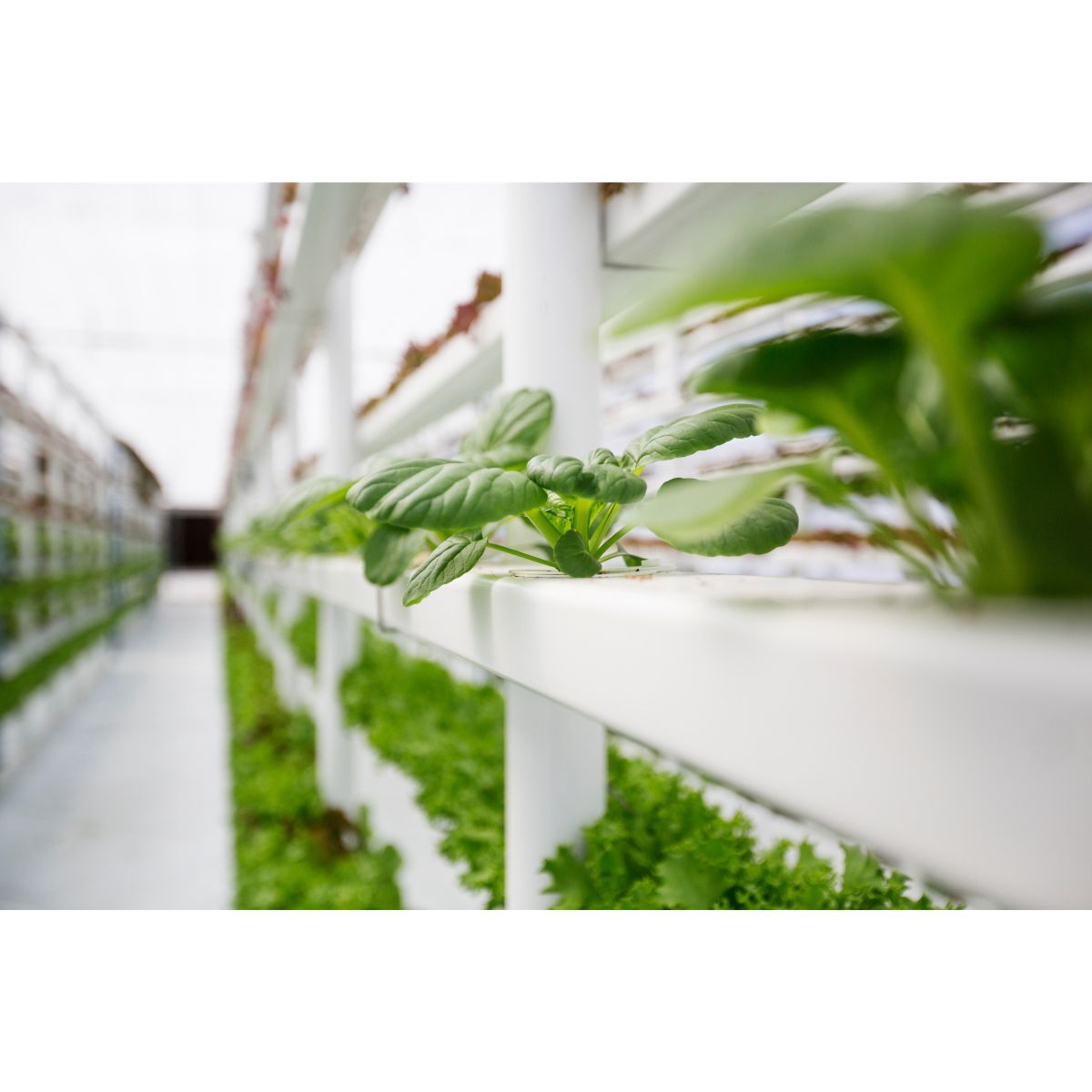
In the last 18 months I have started to work with a number of vertical farming businesses helping them to build their teams. During the process, it has enabled me to start growing my knowledge of the advantages and disadvantages of this method compared to traditional farming. We all are aware that humanity has completely changed the ecosystem of our planet to meet dietary needs, so could Vertical Farming be the way forward and help us to have more food security?
The first thing that struck me was how you can condense hundreds of acres of growing space/farmland into a small warehouse size building not much bigger than a standard size supermarket.
The process allows you to harvest 365 days a year rather than it being seasonal and facing disadvantages of weather etc that are not controllable.
Vertical Farms use 95% less water than traditional farms and allow them to re-use that water rather than it being lost in the soil.
The growth cycle of the product can be condensed into about 10 days and allows around a 700% increase in yield.
Productivity is high and on a small footprint.
It allows produce to be grown without the use of pesticides.
More environmentally friendly.
Reduces transport costs.
Highly energy efficient.
Safe for staff.
There are many advantages of this process, but does this mean that they can easily make conventional farming obsolete and dated therefore potentially destabilising a set of communities that are almost entirely dependent on agriculture? Let’s look at some of the possible disadvantages that people foresee:
There are a limited number of crops that can be grown economically - the main product categories produced this way are leafy greens, herbs, and soft fruits such as strawberries although there is research being conducted for other crop to be grown.
Running a vertical farm requires sophisticated skills - will there be enough skilled people in the industry to run the smart farms?
The knowledge of indoor farming is still limited - To fill this knowledge gap, extensive research is needed.
High dependency on technology working correctly.
High operational costs such as labour and energy.
I think that it is clear that the most successful future for food security will be for traditional and smart farmers’ to work together in order to meet future demand but it is clearly a process that is very much needed. Sustainability is one of the number one things that about 80% of the Graduates I represent are looking for within their role. Both traditional farming and vertical farming businesses also offer an opportunity to work within a “healthy food” category which is also a priority for the future generation of the industry.
Our sector in general is such an incredibly exciting one to be part of. Many people really have no idea how our food gets onto the shelves of the supermarkets or onto our plates and the variety of roles available is vast; NPD, Technical, Growing, Engineering, Commercial, Marketing, Agronomy and Operations to name just a few.
If you are interested in starting a career within the food or agricultural industry or looking to make a move, already having been in it for a while, then please get in touch with our Food and Agricultural Principal Consultant sydoni@compasspoint.co.uk or for Engineering phillip@compasspoint.co.uk call 01284 765700
